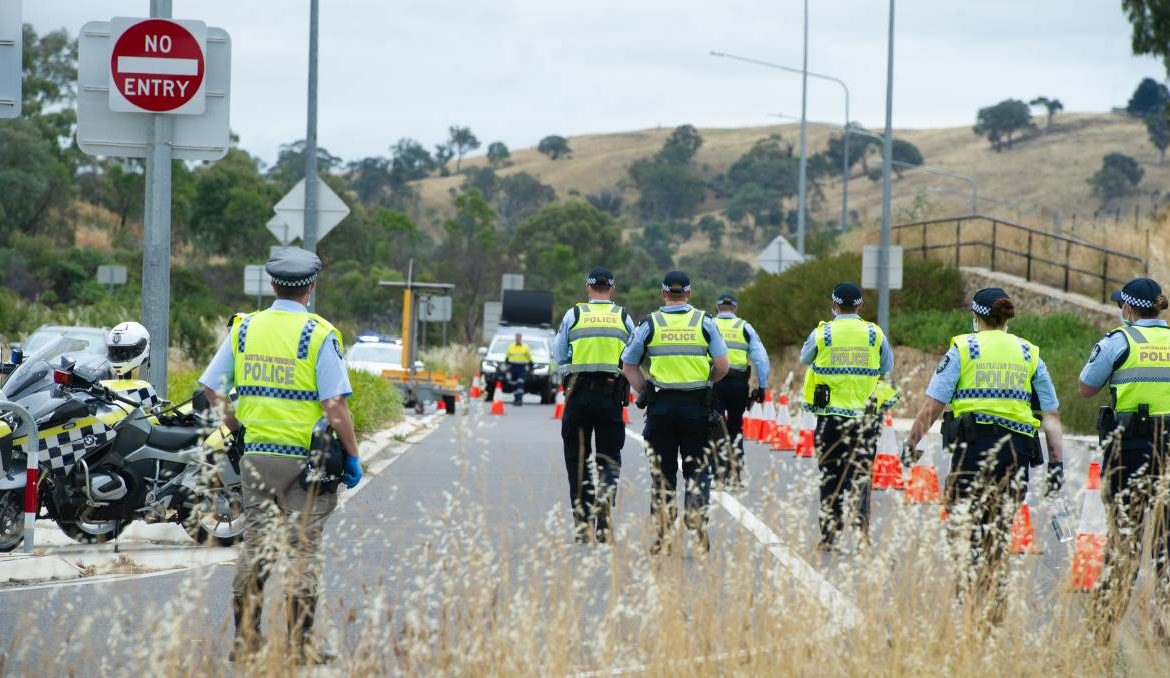comment, editorial,
Just a few weeks ago, you’d have been forgiven for feeling optimistic about the freedoms the new year may have brought. Australia’s borders were opening and COVID-19 was controlled in all states and territories. The weeks and days leading up to the holiday period have been a stark reality check. It’s gone to show there is no such thing as a sure plan in the era of COVID-19. We cannot begrudge any jurisdiction for doing what it can to keep the virus out. But it’s crucial governments maintain good communication – both with its residents and other jurisdictions. Take, for example, Victoria. It was made clear to Canberrans at a Victorian government press conference on Thursday they could still enter the state, including by road, when it closed its borders to NSW. However the message did not seem to get through to those enforcing the rules at the border. Many were told they needed to quarantine and there was no exemption for ACT residents. The Department of Health and Human Services could not provide clarity about what the actual rules were when contacted, and the website did not include the relevant information. The ACT government was able to get confirmation from the Victorian Health Minister’s office that Canberrans did not need to quarantine, but it didn’t stop people at the border continuing to receive conflicting information and advice. By Saturday, a formal transit permit system was in place, which should have marked the end of the confusion. But some people at the border were now told they needed to get a test and isolate until they received a negative result. This information was nowhere to be found on any Victorian government website, and the ACT government was not able to shed any light on the situation. It is understandable that rules may change at short notice, but there’s no excuse for failing to communicate them. As people become more lethargic about restrictions, it’s crucial authorities maintain the public’s trust. People should continue to give governments their full support to implement measures to protect them from COVID-19 outbreaks. There is still a lot of goodwill among most, but a failure to provide clear information or the imposition of arbitrary rules will wear this down. As snap border closures become more frequently enacted as a mechanism to control outbreaks, it’s also crucial we find a way to communicate between states and territories more effectively.
/images/transform/v1/crop/frm/tPntrWhUbGLyDWYCTv46rt/26ef89bb-a175-4531-aadf-aff82a4a7549.jpg/r6_133_2394_1482_w1200_h678_fmax.jpg
Just a few weeks ago, you’d have been forgiven for feeling optimistic about the freedoms the new year may have brought.
Australia’s borders were opening and COVID-19 was controlled in all states and territories.
The weeks and days leading up to the holiday period have been a stark reality check.
It’s gone to show there is no such thing as a sure plan in the era of COVID-19.
We cannot begrudge any jurisdiction for doing what it can to keep the virus out.
But it’s crucial governments maintain good communication – both with its residents and other jurisdictions.
Take, for example, Victoria.
It was made clear to Canberrans at a Victorian government press conference on Thursday they could still enter the state, including by road, when it closed its borders to NSW.
However the message did not seem to get through to those enforcing the rules at the border. Many were told they needed to quarantine and there was no exemption for ACT residents.
The Department of Health and Human Services could not provide clarity about what the actual rules were when contacted, and the website did not include the relevant information.
The ACT government was able to get confirmation from the Victorian Health Minister’s office that Canberrans did not need to quarantine, but it didn’t stop people at the border continuing to receive conflicting information and advice.
By Saturday, a formal transit permit system was in place, which should have marked the end of the confusion.
But some people at the border were now told they needed to get a test and isolate until they received a negative result. This information was nowhere to be found on any Victorian government website, and the ACT government was not able to shed any light on the situation.
It is understandable that rules may change at short notice, but there’s no excuse for failing to communicate them. As people become more lethargic about restrictions, it’s crucial authorities maintain the public’s trust.
People should continue to give governments their full support to implement measures to protect them from COVID-19 outbreaks.
There is still a lot of goodwill among most, but a failure to provide clear information or the imposition of arbitrary rules will wear this down.
As snap border closures become more frequently enacted as a mechanism to control outbreaks, it’s also crucial we find a way to communicate between states and territories more effectively.







